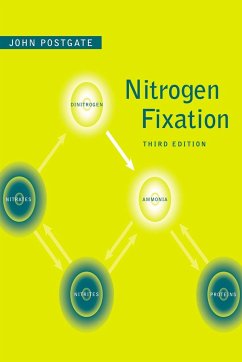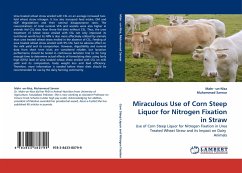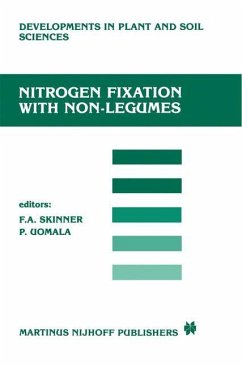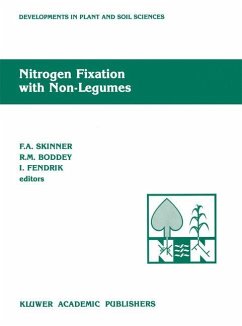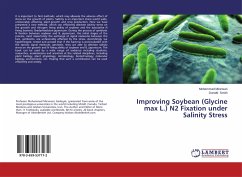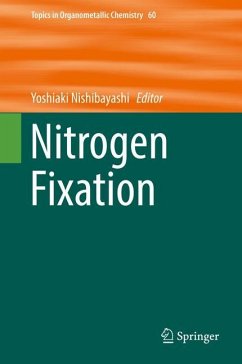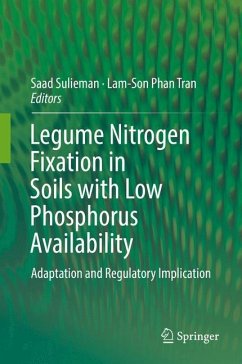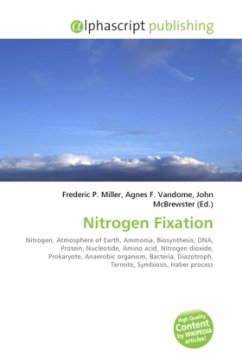
Nitrogen Fixation
Versandkostenfrei!
Versandfertig in 6-10 Tagen
36,99 €
inkl. MwSt.

PAYBACK Punkte
18 °P sammeln!
Nitrogen fixation usually refers to the biological process by which nitrogen (N2) in the atmosphere is converted into ammonia. This process is essential for life because fixed nitrogen is required to biosynthesize the basic building blocks of life, e.g. nucleotides for DNA and amino acids for proteins. Formally, nitrogen fixation also refers to other abiological conversions of nitrogen, such as its conversion to nitrogen dioxide. Nitrogen fixation is utilized by numerous prokaryotes, including bacteria, actinobacteria, and certain types of anaerobic bacteria. Microorganisms that fix nitrogen a...
Nitrogen fixation usually refers to the biological process by which nitrogen (N2) in the atmosphere is converted into ammonia. This process is essential for life because fixed nitrogen is required to biosynthesize the basic building blocks of life, e.g. nucleotides for DNA and amino acids for proteins. Formally, nitrogen fixation also refers to other abiological conversions of nitrogen, such as its conversion to nitrogen dioxide. Nitrogen fixation is utilized by numerous prokaryotes, including bacteria, actinobacteria, and certain types of anaerobic bacteria. Microorganisms that fix nitrogen are called diazotrophs. Some higher plants, and some animals (termites), have formed associations (symbiosises) with diazotrophs. Nitrogen fixation also occurs as a result of non-biological processes. These include lightning, industrially through the Haber-Bosch Process, and combustion. Biological nitrogen fixation was discovered by the Dutch microbiologist Martinus Beijerinck.




